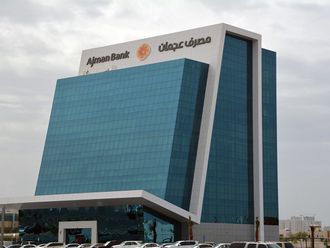ISTANBUL: Turkish markets turned lower on Monday following Tayyip Erdogan’s presidential election victory, as investors weighed the economic risks associated with a likely further concentration of power in the former premier’s hands.
With the market focus on a lack of clarity regarding Turkey’s future monetary policy and the make-up of its economic management team, Istanbul shares lagged the emerging benchmark and the lira shed initial gains.
“The presidency has until now been a largely ceremonial position, but it seems that Mr. Erdogan will seek to concentrate more power in the role. If this happens, his victory could lead to a more belligerent and unpredictable policymaking environment,” said William Jackson, Capital Economics emerging markets economist.
“In time, a deterioration in the predictability of policymaking and, more generally, institutional standards in Turkey would deter investors and make it more difficult to attract capital inflows.” As prime minister, Erdogan oversaw a decade of growth and stability after a long period of economic chaos and political drift. His Deputy Prime Minister Ali Babacan, who doubled as economics minister, helped to ensure the success of the AK party’s 12-year rule.
But Babacan’s future role is unclear, and pressure from Erdogan on the central bank to keep cutting interest rates — despite high inflation and expectations that US monetary policy will soon tighten — seems unlikely to ease.
“In the coming weeks, Turkish financial markets are likely to welcome the Erdogan win as a sign of continuity,” said analyst Amy Yuan Zhuang at Nordea Research.
“ ... However, political uncertainty is high within the coming three months, which supports our view of lira weakening versus the euro on that horizon.” The lira eased to 2.1555 against the dollar by 0932 GMT, still firmer than 2.1601 late on Friday but weakening from a peak of 2.1351 in early trade reached as investors responded to the emphatic nature of Erdogan’s election win.
The main Istanbul share index fell 1.06 per cent to 78,359.54 points, lagging the main emerging market benchmark
which rose 1 per cent.
The benchmark 2-year government bond yield was unchanged at 9.36 per cent, after falling to as low as 9.19 per cent earlier.
“There was a temporary relief rally in the market this morning as uncertainties were left behind,” said Pinar Uslu, a strategist at ING.
“Geopolitical risks are putting pressure on emerging markets including Turkey. In the short term we will [also] monitor ... domestic political developments and inflation.”
In the longer term there are concerns about the possible erosion of balances in the system under a sometimes impulsive leader who has made clear that, unlike his predecessors, he will exercise the full powers granted to the presidency under current laws.
Ratings agency Fitch said political risk would weigh on its credit ratings through its potential to discourage capital inflows and reduce policy predictability.
Political tension was likely to remain high as Erdogan seeks to extend the powers of the presidency and his pressure for rate cuts could undermine the central bank’s “tenuous credibility”, Fitch said in a statement on Monday.
Erdogan’s victory in Sunday’s vote takes him a big step closer to the executive presidency he has long coveted for Turkey. But it is an outcome which his opponents fear will herald an increasingly authoritarian rule.
“We will have to see how policy evolved and we’ve yet to see how an Erdogan presidency compares to an Erdogan premiership. A year ago Turkey was in the fragile five, but over the last 12 months there has been rebalancing,” said Julian Mayo, co-chief investment officer at Charlemagne Capital, who are overweight on Turkey.
Erdogan had been insisting on lower interest rates before the election. He has repeatedly accused an “interest rate lobby” of speculators of pushing for higher rates and seeking to undermine the Turkish economy.
The central bank has already cut its main one-week repo rate by 175 points since May, moves which some economists see as hard to justify given persistently high inflation.
“The pressure on the central bank to ease monetary policy will persist. Erdogan had been quite vocal regarding the necessity to cut interest rates and he will continue to be so,” said Thu Lan Nguyen, a currency strategist at Commerzbank.
“The likely continuation of the rate-cut cycle will put pressure on the lira, particularly when monetary policy in the US is normalised.” Turkey is highly susceptible to changes in global liquidity conditions because of its large current account deficit.
“I went underweight mainly because of feeling that risk aversion was rising in general and Turkey is very sensitive to that. It’s very sensitive to US Federal Reserve policy and that uncertainty is rising,” said Maarten-Jan Bakkum, investment strategist for ING Investment Management’s emerging market funds.












